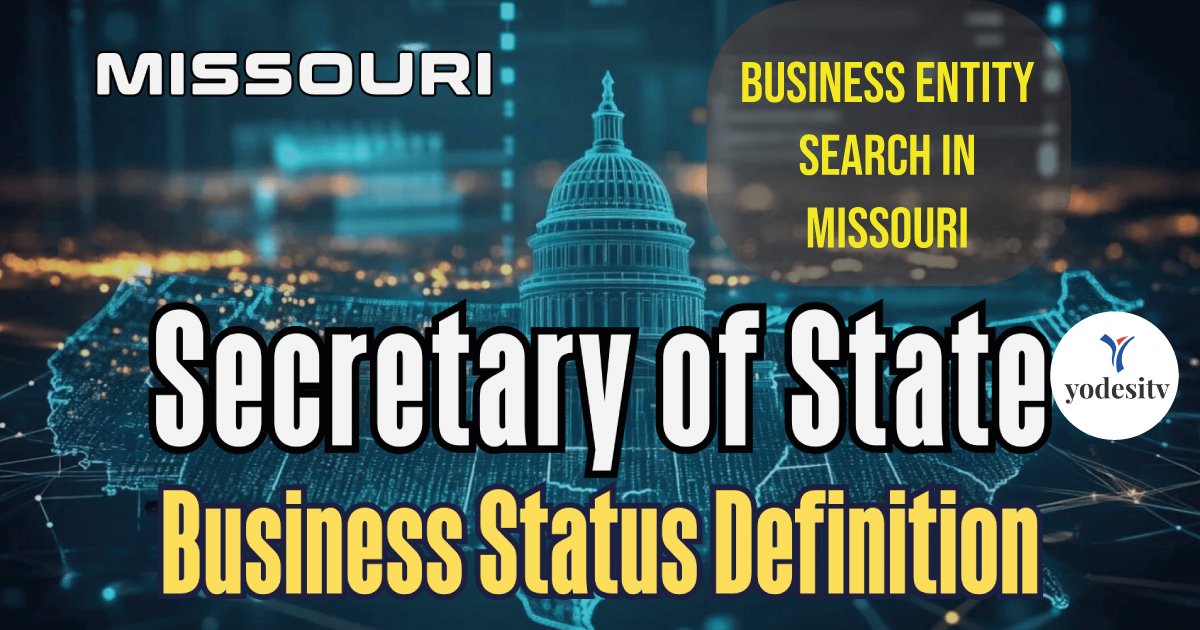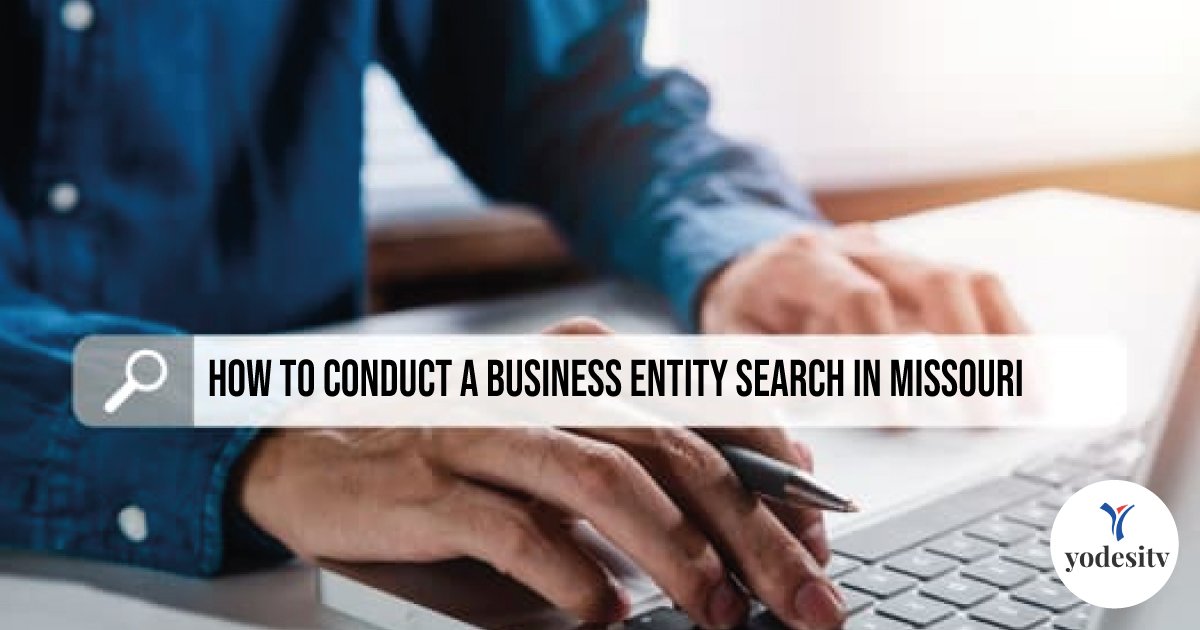Intro
This essay is the result of a larger effort by the Missouri Secretary of State’s office and the Division of Information Technology and Research at the Truman School of Public Affairs to better understand how to measure the impact of the Missouri Business Entity Search. It outlines the significance of business entity searches in the state and seeks to quantify and articulate the full magnitude of its benefits.
First, however, it is important to set the stage by understanding the legal framework within which business entities operate, and briefly delving into the world of business entities themselves. This high-level scan will provide a foundation for a more in-depth exploration of the topic. Conversely, there are many lay consumers who use business records, such as full annual reports, to learn about businesses they would like to patronize, including corporations, limited liability companies (LLCs), professional corporations, and other registered business entities.

Business entity searches are, in short, how consumers, business owners, and other stakeholders can find any legally required information on a registered business in a given state. Business searches are not only the way for the public to access a variety of information required by state laws, but also a way for the state to provide such information. The practice of requiring differing degrees of disclosure from legally recognized business entities is nothing new for the United States, with variations of these requirements being in place since before our statehood.
Early varieties of business records were used specifically to protect creditors’ rights, as there was no way for individuals or groups to know if their business partners were living up to their financial obligations. These early reporting requirements derived from English common law and were then the product of most state corporations acts in the 19th century.
Background of Business Entity Search
Business entity searches have become a critical component of state government services. Historically, an individual would have had to travel to the local recorder of deeds office or the Missouri Secretary of State’s Business Services division office to determine if an entity was a legal corporate entity within the state. For over 100 years, the Missouri Secretary of State has required new corporations to file a charter or articles of incorporation with the state and has maintained, at a minimum, a true and accurate index of those filings. The entity index provided a method of searching new entity filings.
As business records went from paper-driven to online to the Internet, the accessibility and amount of business entity information that Secretaries of State have maintained and published has changed. Secretaries of State saw this change in forms and means of conveying business entity information and amended laws relative to those changes. Over time, business entity searches have developed many classifications that range from narrative searches to bulk searches.
Bulk searches allow private companies to analyze or update large business databases. Every Secretary of State requires a business entity to register with a governmental office to operate within a state as a business, but each state varies in methods of business registration. Different forms of registration could involve filing at a state/province level, a county level, or a city level.
The Missouri Corporations division began as a part of the Missouri Secretary of State’s office at statehood. Missouri repealed the chartering mandate from the Constitution in 1980 and replaced it with business registration requirements. Currently, business registrations are maintained at both the Secretary of State and local county levels within Missouri. Therefore, this report will focus on business entity search information regarding the Missouri Secretary of State’s Office. The current Missouri Corporations Act governs business entity filings that the Missouri Secretary of State’s Office receives, files, and indexes.
The types of entities depend on corporate status but include for-profit corporations, not-for-profit corporations, limited liability companies, limited partnerships, and statutory business trusts. Individual county officials receive charter filings from for-profit corporations and index those charters filed that expire on the date that county official receives them or for forty years. State law authorizes the statutory business registration and filing fees. The money collected covers the cost to file and index the business registrations. An entity must be in good standing with all income taxes due to the state paid before they may obtain any business registration services in Missouri.
Operating and managing a business in an open and transparent manner is the cornerstone of Supreme Court decisions and the reasons businesses, policymakers, and law enforcement have historically supported laws requiring business registration. In addition to compliance issues, law enforcement is also concerned about other areas including organized crime rings, fraud operations, and legal paperwork mills as motives of those who conduct the search.
The Importance of Business Entity Search
It is vital for many stakeholders to verify that they are doing business with legitimate entities when considering hiring attorneys through attorney directory listings or hiring prospective employees. Entrepreneurs or potential business owners also look to the marketplace for existing entities in their industry. They can easily conduct a business entity search online to check for name availability and ensure they are not choosing a name that is similar to an existing business in their field.
Searching a name also works in protecting intellectual property or trade names. Potential investors or joint venture partners with other companies may conduct a business entity search to determine if there are any red flags with potential legal issues pending with the company they wish to invest in or partner with. In addition to searching for a business name, it can also provide them with an idea of the competitive landscape or legitimacy of a business.
Business entity searches and information retrieval deal with the state’s most significant volume of customer contacts. They reported millions of web requests for missed counter transactions and business organization hourly transactions. Search results for the top Secretary of State searches are available concurrently at the time of search. No vital state handling data was collected. Many other states have comparable problems searching.
Business entities and fictitious business names prescribed in law do not appear. Recently, a case was cited where an attorney may not have conducted a search appropriately. Forming an entity using a name just months previously filed leads to failed statutory publication and an enormous penalty levied by an overseas authority. The inquiry led me to believe that in some situations, the SOS does not provide for a similar search.
For Entrepreneurs and Startups
“Startups are unlike any other type of company; sometimes you need the best in the business to guide a ship when the waters are murky.” The most valuable asset a startup can have is a focused group of entrepreneurs taking the time to understand what fish can be caught in the pond before throwing out their lines. For any aspiring entrepreneur, navigating the alphabet soup of business types can be overwhelming.
Individuals aren’t often thinking about the differences between limited liability companies and for-profit corporations when they are formulating an idea. For these individuals, the resources at various business development centers and organizations may hold the best solution. For those practical few, the businesses for whom this resource has been invaluable, they prefer to get a condensed version to help focus on direction. Many who attend these lectures may contact us just to make sure they haven’t missed a blip on their industry map; that they cannot find a competitor online because they know that investors will be able to, and they won’t look prepared when it’s go-time.
While hypothetical, the situation above represents a practice everyone who has or will help a business capitalize would likely see come to life. A local example is a bold entrepreneur who submitted this statement about the time he and Business Services met: “As someone new in business and trying to navigate the legal waters, you were very helpful and didn’t make me feel as ignorant as I was in this area.”
In another reach to those for whom entrepreneurship is a reality, an organization that has already demonstrated that their reach includes future entrepreneurs statewide just by being part of this conversation. For these groups, providing substantive services for beverage or consumer goods companies was made infinitely easier by the fact that they were well-informed when they decided to name themselves TILL. The question becomes, if it was feasible to conduct these searches, could the coming oops moment have been prevented?
How to Conduct a Business Entity Search in Missouri
Conducting a business entity search can reveal essential details about an organization operating in Missouri. Many tools are available online to access the registered businesses in the area using state government databases or commercial databases offering a freemium service. Start by choosing the best option based on the information required. It is recommended to conduct a business entity search on multiple websites to ensure accurate and complete results. Do keep in mind that business entity searches can be complemented by a public records request or a search for a trade name or trademark. This specific guide is focused on conducting a business entity search in Missouri.

The Secretary of State’s office in Missouri manages business entities except for pattern name registrations, which are governed by local county government offices. This means that small retail establishments and merchants, most types of contractors, and most service providers are not required to register their small businesses with the state. Large partnerships, corporations, or other types of business entities operating in the state are, conversely, required to register with the Missouri Secretary of State.
These corporations and limited liability companies are recorded in a business entity database, made available to the public by the state. Other businesses are subject to different public records laws but can still be found, particularly small shops and retail merchants, under assumed name or ‘doing business as’ registration or a trade name or trademark search.
Best Practices for Utilizing Business Entity Search Results
4. Best Practices for Utilizing Business Entity Search Results Analysis
There are several best practices that may be followed to best use the results of a business entity search. These practices are not merely informational, but practical as well. First and foremost, anyone conducting a business entity search must be prepared to thoughtfully meditate upon any analysis that results. Attempt to determine the effects that different pieces of data imply for conducting business with the company involved. There are generally two categories of information available through a business entity search result: Is this business entity currently a valid registration? What does this company’s compliance history suggest about its future operations?
Except for certain rules in state-provided business organization forms, a business entity is required to register. To the best of the ability, an entity’s authorized representatives, addresses, and stated business can be assumed to be valid. Second, the filing history part of the search results can be especially revealing. Businesses may be created, dissolved, and re-created for a variety of reasons. The most current business in the database may be quite legitimate, but without running this search, there is no clarity available to anyone hoping to do business with it.
As such, it is always wise to follow up with the business whose conduct and filings have led to a charging lien. Check means finding a way to learn more or get second opinions before proceeding. It takes much more analysis and reading to understand compliance analysis results than to answer the valid entity question! Again, make sure to not only understand, but also utilize the results of that analysis.
Conclusion and Future Implications
The findings of this essay demonstrate that the Missouri business entity search is critical to multiple stakeholders: not only prospective entrepreneurs hoping to make a living and provide employment for themselves, but also for investors, creditors, and the government’s regulatory apparatus. This will remain true despite, or perhaps because of, great changes in how we work and involve ourselves in business. As we move forward, technological dispersion and legal modernization will guide this practice. On all fronts, the most successful practitioners will be the most adaptable and well-informed.
Technological advancements and the legal and social environment in which they are situated influence the use of business entity search tools and the populations employing them. As technology diffuses, the overarching trend will be increased use; for some, the practice will shift to be more digital. As new legal standards evolve, more will seek the guidance of lawyers and other experts skilled in the use of business entity searches. This indicates substantial future increases in both the online version of the business entity search tool and other search tools.
As time proceeds and search mechanisms change, it will be important to continue educating the public about search tools and their limitations so that when they are used, they are accurate. In the future, regardless of medium or method used, comprehensive business searches will continue to remain a key factor in business management and will adapt and expand as necessary.


